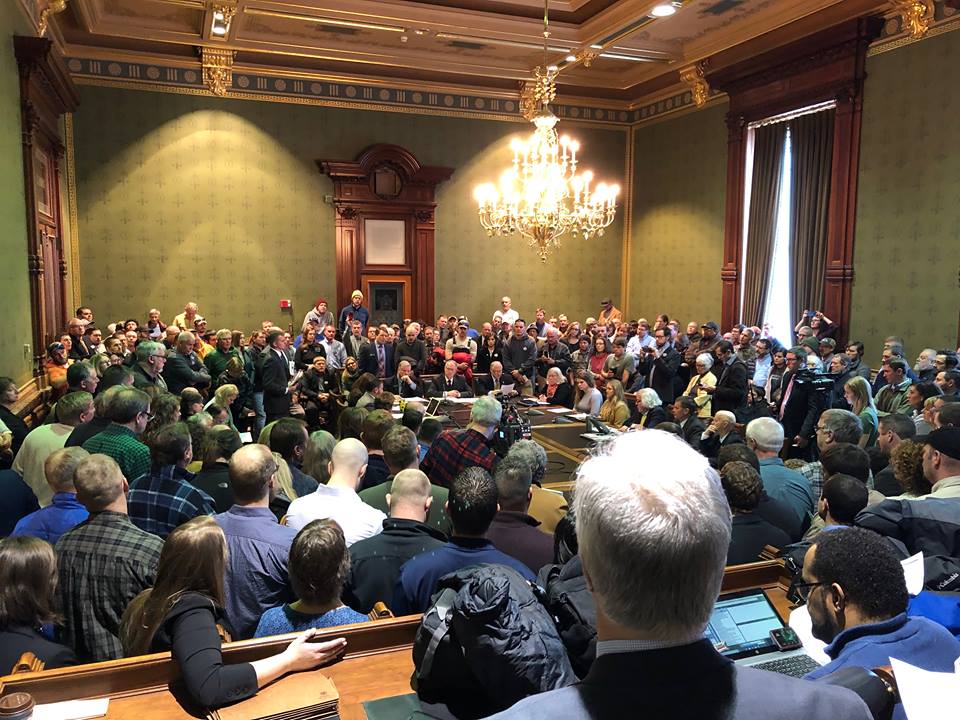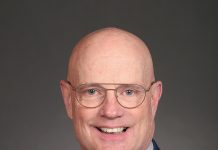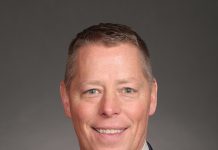Opposition was strong Monday morning to House File 542. Opponents says the bill would block state funding for public land purchases. Republican Rep. Rob Bacon said the bill would not be signed out of subcommittee today, or maybe ever.
Those who opposed the bill said land purchased or land that could be purchased is always for public benefit. They said it’s bad business for the state of Iowa and bad for soil and water quality.
A couple from Urbandale said the bill is unnecessary and does a disservice to Iowa. They own a 280-acre farm upstream from West Lake in Osceola. They said 60 percent of the water that flows into West Lake comes from a creek on their property.
“Our land is not really suited for farming,” they said. “We tried to sell it, tried to get farmers to rent it — it’s in such bad shape nobody really was interested.”
The couple decided to convert some of the land with some native grasses and 23 acres of wetland. They said the wetland provides a natural filter that will take out 5,000 tons of sediment and countless amount of farm chemicals to help the water supply for Osceola and Clarke County.
They said if this bill were in place, the project wouldn’t have happened.
“Without the charitable tax credit, without the ability of the DNR to purchase land, this incredibly valuable project would not have been done,” they said. “This was a completely voluntary project on our part and we wanted our land used in this way. We should be doing more things to encourage these kinds of projects, not putting unnecessary road blocks in the way.”
Jerry Roy of Audubon said he couldn’t understand the things that happen in the Capitol.
“You guys take about 10 minutes to pass the gasoline tax,” Roy said. “We as voters voted seven years ago to go ahead and fund IWILL but you guys don’t do anything about it. If we had IWILL our water quality would be better.”
The cash-strapped DNR, Roy said, had to cut a program at Springbrook State Park that taught boys about hunting, fishing, trapping, canoeing, archery and fishing.
“State parks stink. County parks stink,” he said. “I just don’t understand going back to the 10-cent gas tax. Best bridges, best roads, best infrastructure so people can drive through Iowa to go to Minnesota or Missouri to enjoy what they have down there or up there and we’re losing out.”
Molly Hanson said more than half of the DNR’s land lies within a 100-year flood plain. Iowa is fourth in the nation in the number of floods over the last 30 years.
“Being able to develop a flood plain is not only an advantage, you don’t want to live there,” she said.
Hanson said it was difficult to find conservation work in Iowa, but she didn’t want to end up anywhere else.
“Everyone said move to Minnesota, Wisconsin, insert any other state here,” she said. “The opportunity to live and work here is something that I really value.”
Jim Beakley of Decorah said he has a 150-acre farm, 13 acres of which are in the city limits of Fayette. Part of that land became a part of a recreation trail. Upper Iowa University, which is in Fayette, has a conservation management program. But if this bill goes through that program would suffer, Beakley said.
“That’ll blow up our opportunity to put this land to use how we want it,” Beakley said. “I don’t give a damn what Farm Bureau wants to do with my farm, I know what I want to do with it.”
A member of Ducks Unlimited spoke in opposition to the bill.
“A statement made earlier this won’t cut off the ability for the DNR to acquire public land, that’s like saying to the runner that they can finish the race without moving their legs,” he said. ”
He said according to a Nov. 2017 document from workforce development, 90.2 percent of people said the place they choose to live should have a clean environment that is suitable to live in. Eighty-nine percent said easy access to health care and 80 percent said suitable roads and highways.
“This is an important, important topic,” he said. “This legislation doesn’t create another job, it doesn’t make it easier to bring people to the state, it doesn’t make it easier to retain people who are already here. I would respectfully ask the committee to not sign it forward.”












